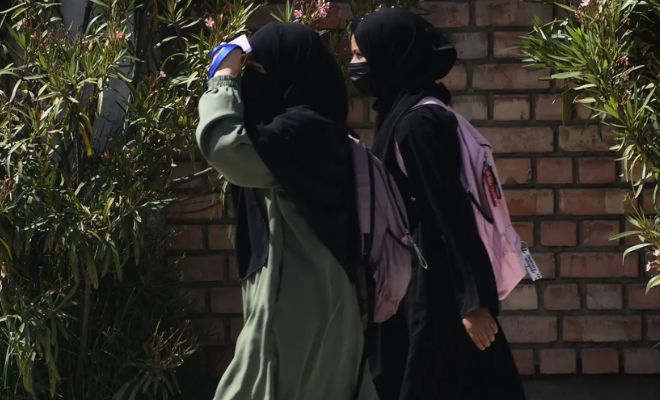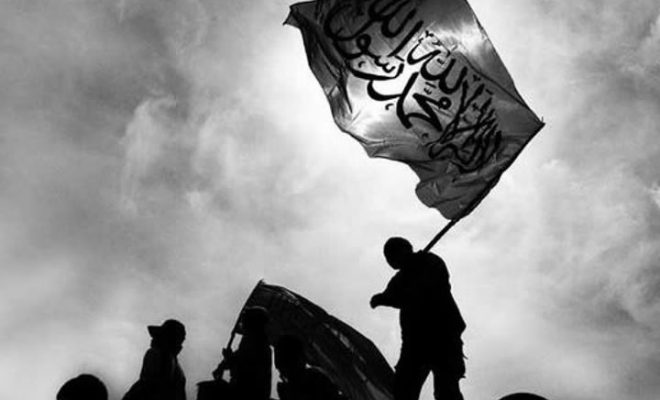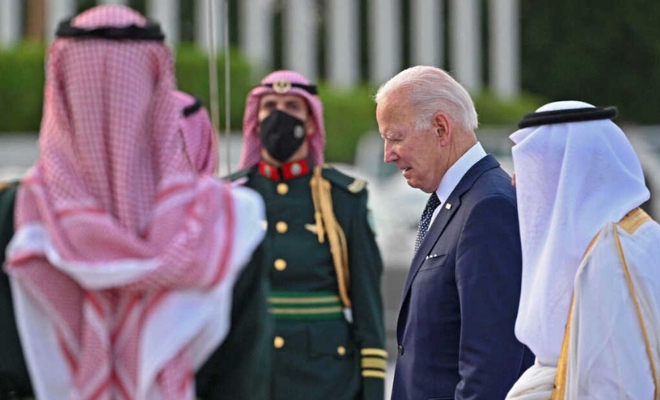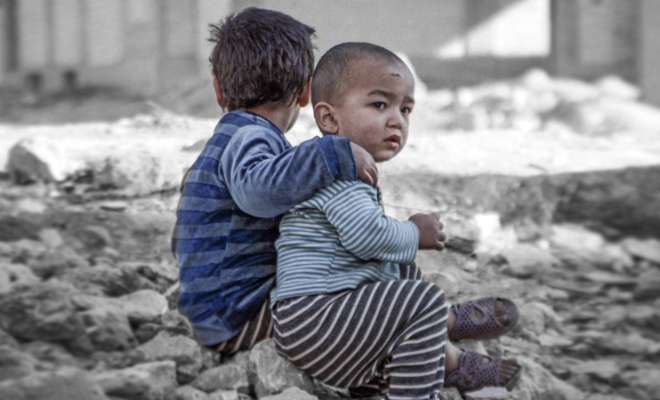France Attacks Islam AGAIN: Lessons for Muslims in Canada

At the beginning of this month, as French schoolchildren were preparing to return for their classes, the French education minister announced that it would not longer be possible for anyone to wear an abaya in schools. The stated reason is to protect laïcité or secularism in French public schools. The minister indicated that no one should be able to identify a student’s religion by looking at them and described schools as “sanctuaries of secularism” that make students “free to emancipate themselves”.
The context of this new regulation is an increase in France of female students wearing abayas in school. It is crucial to remember that hijab is already banned in French public schools, under a 2004 law that outlawed the display of religious symbols in school. Apart from the abaya, boys are also forbidden from wearing a dishdasha or shalwar, loose fitting clothes traditionally worn by Muslim men.
Government spokesman Olivier Veran further explained the ban, indicating that the abaya was “obviously” religious, “a political attack, a political sign” and an act of “proselytizing”. The ban enjoys popular support among the French public; moreover, an effort by Muslims to obtain an injunction against it was rejected by France’s highest court for holding public officials accountable: the State Council.
What should we as Muslims make of this brand of secularism that criminalizes the practicing of our deen? And what can we in Canada learn from the situation of our brothers and sisters in France?
French Institutions: A Deep Hatred for Islam
The first point to keep in mind is that the cause of this policy, and the law from 2004, is a hatred of Islam. While it is important to understand and refute the French the idea of freedom through state enforced secularism, we should not let this academic and philosophical discussion distract us from the ground reality that the French government and its institutions fear and hate Islam.
The French government is well aware that the abaya on its own is not a symbol of Islam. Neither is a dishdasha or shalwar. They had already achieved their purpose of banning religious symbols in 2004. The purpose of this added cruelty is to stop students from even taking any actions that could be said to be inspired from Islamic concepts of modesty or engage in forms of culture that are traditional to the Muslim lands. In other words, this ban goes beyond defying religious symbols in public spaces, it seeks to criminalize Muslims taking any public actions that are inspired by Islamic thought or Muslim culture. Asking Muslims to forego the abaya to show they are not affected by Islamic concepts of modesty is similar to asking Hindus to publicly eat beef every day in school to show they are not affected by the Hindu concept of vegetarianism. But of course, we know that no other community will be subjected to this level of scrutiny of their beliefs and values, because the French authorities do not fixate on their hatred of them as they do with Islam.
This hate is not limited to educational policy. France passed a law in 2017 that allowed police officers to shoot anyone who failed to comply with a traffic stop, as long as they could claim that they felt this person was posing a danger to others. The outcome of this situation has led French police to open fire on more than a dozen individuals, primarily of North African and Maghrebi Muslim descent. In just June of this year, they killed 17-year-old, Nahel Merzouk, may Allah have mercy on him and grant his family patience. Nahel escaped a police traffic stop and was followed and killed by them as a result. The police lied that he was driving towards them, this was easily disproven by video footage that showed him driving away from them.
This is the callousness and brutality with which French institutions deal with Islam and Muslims. They hate our ideas, cultural affiliations, and even our existence in the society they dominate.
The Absurdity of Coerced Freedom
Having understood this primary point, it is useful to reflect on the absurdity of the idea that French secularism is providing some kind of emancipation to Muslim youth through its criminalization of their beliefs and values. What exactly is it emancipating them from, their own hearts and minds? After all, a Muslim is someone who has comprehensively considered the relationship between their existence in this life, their Creator who preceded them, and their life after death. Based on this, they have found a purpose of their life that they are intellectually convinced of, and that resonates deeply with their mind and instincts. The desire to dress more modestly, or to connect with a culture that is shaped by Islam, is a direct result of this purpose. Forcing them to refrain from acting in accordance with this purpose is not liberating them; it is damaging them. It is enslaving them to the dominant ideas of Capitalist society, which are based on man’s sovereignty that leads to freedoms, hyper-individualism, mindless consumerism, and heedless pleasure seeking.
This is the reality of secularism. Because of Europe’s history with a church that opposed the intellect, stole the wealth of the people, and oppressed the powerless, there was a bitter struggle between the intellectuals and the church. Capitalism emerged as a solution to this struggle, but the answer it provided did not try to find an answer to the questions raised by either the clergy or the enlightenment philosophers. Rather, it was only interested in finding a compromise to end the centuries of bloody struggle that had consumed the two camps. So, the answer they came up with was a secularism that argued that religion may not be suppressed in private life, but it should not shape public policy, law, or institutions. Essentially, it separated the big questions of how to manage society, the economy, and human relationships from the fundamental question concerning the purpose of our existence. In effect, it prevented society from being run according to a shared sense of ultimate purpose, and instead allowed it to be run according to the worldly interests of the economic elite.
It should be understood from this that secularism is not emancipation, rather it is enslavement to the desires and whims of the economic elite. True liberation comes from understanding the purpose of our existence, and committing ourselves to serving that purpose, owing no obedience to powerful men, man-made institutions, or even our own base desires and distractions.
Our most Just and Merciful Creator did not just communicate our purpose with us, he revealed to us detailed guidance on how to structure our lives, families, communities and socio-economic system so that we would serve none but Him. Those who follow this guidance are described by the Creator as:
“˹They are˺ the ones who follow the Messenger, the unlettered Prophet, whose description they find in their Torah and the Gospel. He commands them to do good and forbids them from evil, permits for them what is lawful and forbids to them what is impure, and relieves them from their burdens and the shackles that bound them. ˹Only˺ those who believe in him, honour and support him, and follow the light sent down to him will be successful.” [TMQ 7:157]
What Can We Learn from This?
Muslims in Canada are no stranger to this French conception of secularism. We see it enacted in the province of Quebec, which has flirted with many different forms of niqab, and hijab bans over the past few decades, finally settling on stopping women who wear the hijab from working in any position of authority in a governmental job.
This anti-Muslim sentiment, however, is not limited to the Quebec government. In fact, when the Federal government appointed a sister to ostensibly help combat anti Muslim bigotry, on the anniversary of the murder of our 6 brothers in Quebec City, the opposition was quick to point out that she had previously written openly about anti Muslim bigotry being the cause of the hijab ban in the province. She was lectured by xenophobic politicians about how the opposition to the hijab has nothing to do with hating Islam, but is just a commitment to secularism. She was forced to apologize to these bigoted politicians by the prime minister himself.
Both the treatment of this sister, the situation in Quebec, and the escalating bigotry in France should be instructive to us as a minority in Canada. If and when the dial of public opinion is turned against us by opportunistic politicians, media houses or thinktanks of the economic elite, there will be no Canadian institution for us to turn to. Like our brothers and sisters in France, we will be unable to appeal to the elected parties, public opinion, or even the courts for the ability to practice our deen. Like our sisters in Quebec, our cries about our Charter rights will be ignored by the courts, who will rule as they have that Quebec is within its constitutional rights to impose this ban. We will, like the sister who was hired by the prime minister, be forced to listen to the condescending explanations of bigoted politicians about how their bigotry towards us is actually liberating us, and how we need to spend more time understanding the motives of our oppressors.
What else can we expect from these institutions? They are designed by and for the system of Capitalism, which has every reason to be hostile to Islam. The Islamic system limits the economic power of the elite by forcing them to spread their wealth, either through zakat, or by investing in the real economy, i.e., the actual provision of good and services. This in sharp contrast to Capitalism, which encourages hoarding, monopolies, and financial markets based on interest (riba) and other paper-based transactions (e.g., stocks, derivatives). The Islamic system also regulates the social interaction between men and women to be based on modesty, mutual responsibility, and clear roles. This is in opposition to the Capitalist system that encourages only looking after yourself, pursuing your own pleasures, and denying any responsibility you may have to the greater society you belong to.
Instead of putting our hopes in the courts, parties, or bureaucracies of Capitalism, we must exert our collective efforts to revive the Islamic way of life in the Muslim lands. Would it not be better for our own future, and the future of our children to focus on unifying the Ummah around the revealed guidance of Islam, and uniting our lands and resources around a just Islamic leadership? What could be more pleasing to us and our Creator on the Last Day then re-establishing the independence of the Ummah under the guidance of Allah (swt) through the establishment of the Islamic Khilafah state? It is the only beacon of hope that would shine the light of Islam all over the world, as a home for those who believe and for any seekers of truth who would like to live under its shade.
“You are the best nation produced [as an example] for mankind. You enjoin what is right and forbid what is wrong and believe in Allah. If only the People of the Scripture had believed, it would have been better for them. Among them are believers, but most of them are defiantly disobedient.” [TMQ 3:110]









